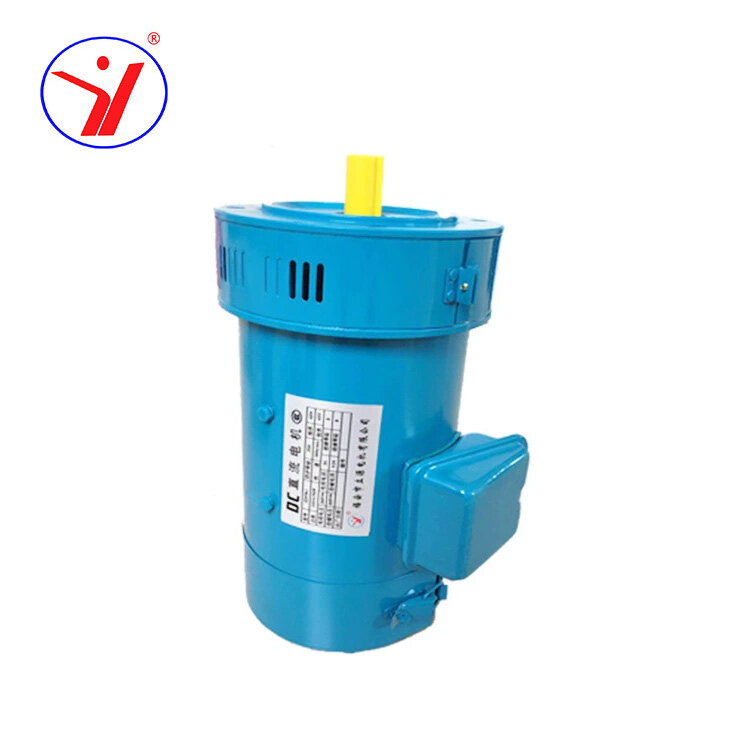Exploring the Wonders of Permanent Magnet DC Motors
Overview
Permanent magnet DC motors play a crucial role in modern industry. They represent an innovative type of motor that utilizes the unique properties of permanent magnets to generate force and motion through the application of electric current. This article delves into various aspects of permanent magnet DC motors, ranging from their basic principles to applications and performance characteristics.
What are Permanent Magnet DC Motors?
Permanent magnet DC motors are a type of motor that harnesses the interaction between a permanent magnet's magnetic field and electric current. By introducing direct current (DC) into the motor, these motors utilize the magnetic field of the permanent magnet to generate rotational force, achieving mechanical motion. This fundamental principle makes permanent magnet DC motors an ideal choice for various applications.
Explanation of Operating Principles
The operating principles of permanent magnet DC motors involve introducing DC into the motor, creating interaction between the permanent magnet's magnetic field and the electric current. This interaction leads to the motor's rotation, creating an efficient and controllable power source.
Advantages and Disadvantages
Advantages
Permanent magnet DC motors boast several noteworthy advantages. Firstly, they exhibit high efficiency in converting electrical energy to mechanical energy, providing outstanding performance. Additionally, their simplicity and compactness, as they do not require external excitation, make permanent magnet DC motors suitable for a wide range of applications.
Limitations Associated with Permanent Magnet DC Motors
However, like any technology, permanent magnet DC motors have limitations. Their higher cost and the increased demand for materials such as rare earth metals during manufacturing contribute to environmental impacts. Sensitivity to cost and environmental concerns may limit the widespread adoption of permanent magnet DC motors in certain applications.

Applications
Diverse Applications
Permanent magnet DC motors find diverse applications across various industries. From industrial production to transportation, these motors play crucial roles. In industrial manufacturing, they drive various production equipment, enhancing efficiency. In the transportation sector, they are widely used in electric and hybrid vehicles, contributing to the development of sustainable transportation.
Specific Use Cases and Industries
In specific use cases, permanent magnet DC motors are particularly significant. For instance, in medical devices, these motors drive precision instruments, ensuring the accuracy of medical procedures. Moreover, in the aerospace industry, permanent magnet DC motors are extensively used in critical systems of aircraft and satellites, showcasing their reliability in demanding environments.
Comparison with Other Motor Types
Type Comparison
Permanent magnet DC motors have unique characteristics compared to other motor types. In comparison to brushed DC motors, they eliminate the need for periodic brush replacement, reducing maintenance requirements. Compared to AC motors, permanent magnet DC motors exhibit higher efficiency and faster response times, making them suitable for applications requiring rapid and precise control.
Unique Features
The unique features of permanent magnet DC motors extend beyond their efficiency. Their compact design and lightweight structure give them an advantage in applications with limited space. This flexibility allows permanent magnet DC motors to be widely used in drones, robots, and other automated systems.
Design and Construction
Insights into Design and Construction
The design and construction of permanent magnet DC motors reflect their efficiency and flexibility. Clever arrangements of permanent magnets and current-conducting components allow designers to achieve optimal electromagnetic interactions, enhancing motor performance. Advanced materials and manufacturing techniques also play a crucial role in motor design.
Key Components and Their Roles
In permanent magnet DC motors, key components such as the permanent magnet, stator, and rotor play essential roles. The permanent magnet generates a stable magnetic field, while the design of the stator and rotor directly influences the motor's efficiency and torque output. Understanding these components and their interactions contributes to a better understanding of how permanent magnet DC motors operate.
Performance Characteristics
Exploration of Performance Characteristics
Performance characteristics of permanent magnet DC motors include high efficiency, excellent torque output, and reliable speed control. These features make them widely adopted in applications requiring highly precise movements. Additionally, permanent magnet DC motors exhibit lower power consumption, contributing to overall system energy efficiency.
Factors Influencing Performance
The performance of permanent magnet DC motors is influenced by various factors. Environmental temperature, current input, and load variations can affect motor performance. Understanding these factors and taking appropriate measures, such as proper heat dissipation design and current control, helps optimize the performance of permanent magnet DC motors.
Maintenance and Troubleshooting
Maintenance Practices
To ensure the long-term lifespan of permanent magnet DC motors, some maintenance practices are crucial. Regularly checking various motor components to ensure there are no loose or worn parts and implementing proper lubrication measures are simple yet effective maintenance practices that contribute to extending the motor's lifespan.
Troubleshooting Guidance
When encountering issues with permanent magnet DC motors, swift and accurate troubleshooting is vital. Understanding potential causes of faults, such as current overload or magnetic field failure, aids in quickly resolving issues. Additionally, regular system diagnostics and detection are effective means of preventing faults.
In delving into various aspects of permanent magnet DC motors, we not only highlight their technical characteristics but also incorporate practical applications from different fields. This approach provides a comprehensive understanding of permanent magnet DC motors, bridging the gap between theory and real-world applications.


